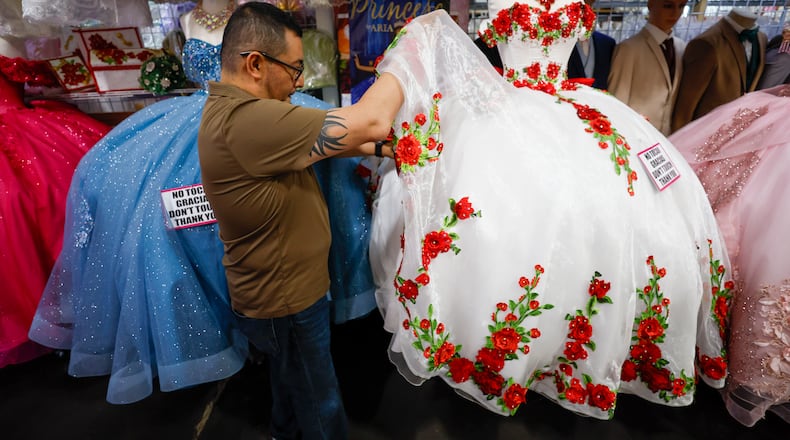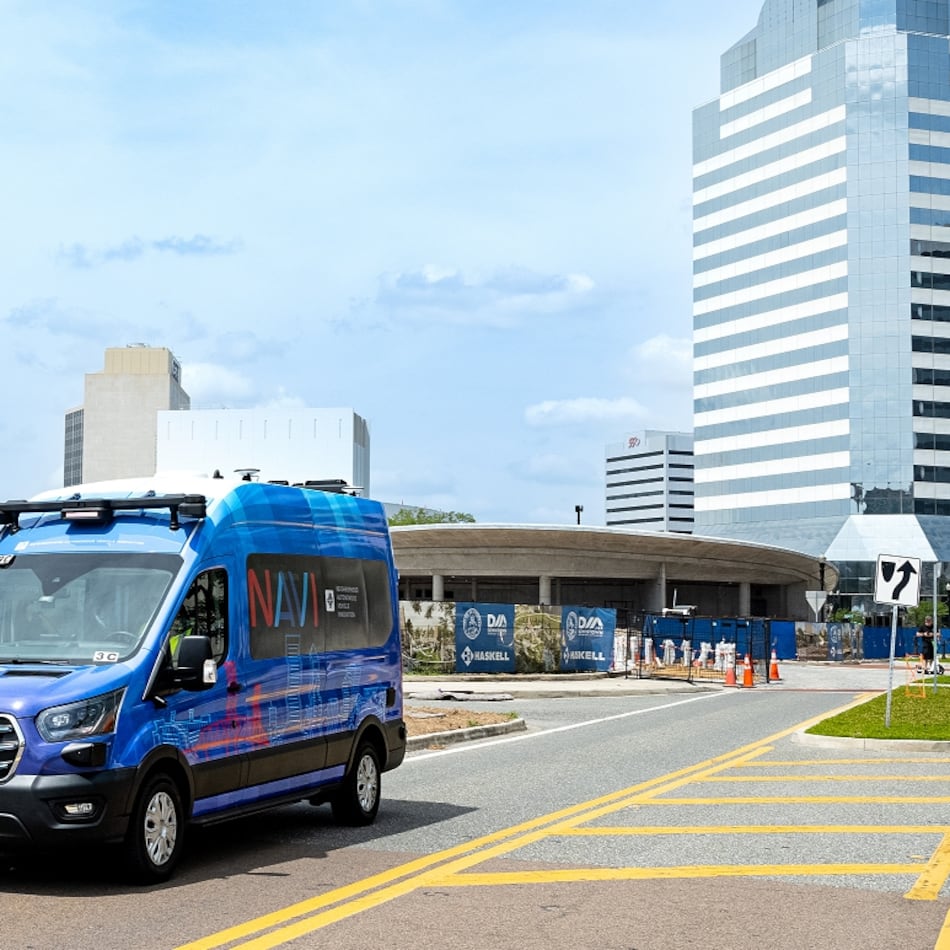For more than a decade, Jose Olague has run a sportswear store out of Plaza Fiesta, the bustling Latin-centric shopping center on Buford Highway at the edge of Brookhaven.
He sells jerseys, cleats, wrestling masks and other assorted ephemera like key chains, hats and toys, all popular items among customers passing through the mall.
In recent months, however, Olague has noticed a significant drop-off in business. He estimates his sales are down anywhere between 40% and 60% year-over-year. He’s had to cut corners to save costs.
“I had two employees before. Now I only have one,” Olague said. “You cannot make it. You need to reduce your salary and work more.”
Credit: Miguel Martinez-Jimenez
Credit: Miguel Martinez-Jimenez
Nearly six months after U.S. Immigration and Customs Enforcement made arrests across Buford Highway, one of the most vibrant immigrant enclaves in metro Atlanta, business owners are still feeling the impact of residents apprehensive to leave their homes.
The targeted operations by immigration agents, mobilized in the first few days of President Donald Trump’s return to the White House, came as a surprise to many. Some residents along Buford Highway said they were concerned about going to work, school or businesses to shop or dine, afraid of what could happen if they leave their neighborhood or are separated from their families. Inaccurate information and rumors about further arrests on WhatsApp, Facebook and other social media fanned the flames.
Fear still lingers. Lily Pabian, the executive director of advocacy organization We Love Buford Highway, said she’s still noticing fewer families coming to the group’s monthly food distribution event. At the most recent event May 24, 13 families out of the 50 scheduled to receive food did not show up.
Credit: Miguel Martinez-Jimenez
Credit: Miguel Martinez-Jimenez
“It’s still impacting our communities in the sense of them not going out and not being as active in the community,” Pabian said. “And to me, that’s really bothersome.”
Plaza Fiesta, a bustling center of activity with shops and services catered toward Atlanta’s Spanish-speaking populations, wasn’t exactly a ghost town in the days after the arrests, but some business owners noticed a decrease in foot traffic. The arrests happened during a particularly inopportune time for many of the mall’s shops, which tend to see lower sales in the months after the holiday season.
Frank Chavez, who has run a dress shop called Lizzy Fashion for about 14 years, called January and February “double slow.” Activity picked back up in April, he said, but he still anticipates his sales are down by 30-40% year-over-year.
Now, business owners are having to confront another challenge, the constant moving target of tariffs. In April, Trump announced what he called “reciprocal tariffs” on nearly every country, with some of the highest levies hitting some of America’s biggest trading partners. The tariffs rattled global financial markets and raised fears of inflation and a possible recession.
Trump ultimately curbed most of them as the White House launched negotiations with many trade partners.
On May 28, a federal court blocked Trump from imposing the tariffs under an emergency powers law. Then an appeals court said the tariffs could remain in effect for now.
Whether it’s 10%, 20% or even higher, businesses facing tariffs will likely have to absorb increased costs or pass them on to consumers. Olague imports most of his products from China, he said. So does Chavez, who estimates half comes from China and the other half comes from Mexico.
Credit: Miguel Martinez-Jimenez
Credit: Miguel Martinez-Jimenez
As of now, Chavez is not planning to raise the prices of his merchandise, which includes baptism clothing, evening gowns and quinceañera dresses. Olague isn’t raising his prices just yet, either, but he said he may have to.
To offset costs, Chavez hasn’t cut employees, but he is buying less merchandise. Each year, he typically spends about $3,000 with one company, and now he’s spending about half that.
Chavez has been in the business for a long time, he said. Fears over the economy and immigration are sparked every four years as a new president steps into office. He’s noticed that sales tend to slow down at the beginning of a new term.
“For me, it feels like a challenge,” he said. “Every day [Trump] keeps coming with something else.”
Credit: Miguel Martinez-Jimenez
Credit: Miguel Martinez-Jimenez
Julio Gutierrez, a barber at Plaza Fiesta, has also been financially hit by a decline in customers. He estimates he has seen about a 40% decrease.
Through a translator, Gutierrez said the community is afraid. Customers have asked him if immigration agents have been to the property. He said his family has considered returning to their home country of Venezuela.
“It’s a constant mental fight between ‘Should I stay or should I go?’” Gutierrez said. “We’re debating what is best for my family, and it’s very difficult to consider. The mental toll is pretty hard for everybody.”
Mulling over his thoughts on the economy, Olague recites a proverb in Spanish often used when someone is going through a hard time: “No hay mal que dure 100 años.” That is, there is no misfortune that lasts a hundred years.
About the Author
Keep Reading
The Latest
Featured







